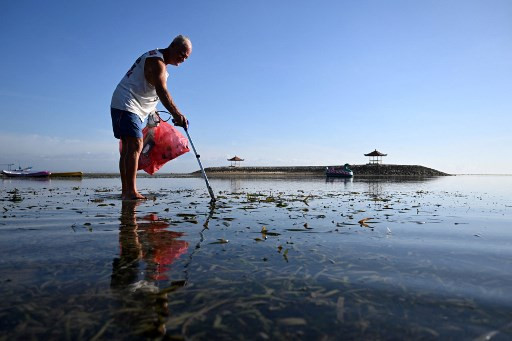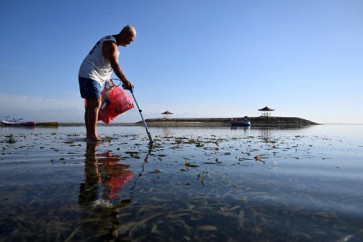Popular Reads
Top Results
Can't find what you're looking for?
View all search resultsPopular Reads
Top Results
Can't find what you're looking for?
View all search resultsAddressing plastic pollution via extended producer responsibility programs
Many Southeast Asian countries have taken measures to tackle plastic pollution by implementing EPR, and will need to create policies to address challenges related to logistics, capacity and demand that involve both producers and consumers.
Change text size
Gift Premium Articles
to Anyone
N
umerous academic studies have unveiled Southeast Asia as a significant hot spot for plastic pollution, primarily due to the rising use of plastics and a limited waste collection infrastructure. In response to this growing crisis, several Southeast Asian countries have initiated the implementation of extended producer responsibility (EPR) programs, particularly focusing on packaging and container waste.
EPR, as defined in 2001 by the Organisation for Economic Co-operation and Development (OECD), is an environmental policy that extends a producer’s responsibility for a product to include its post-consumer stage. EPR schemes initially emerged in the early 1970s, pioneered by local governments in the United States and Canada that employed deposit and refund systems.
Since the 1990s, various developed nations have shifted the responsibility to producers for collecting and recycling diverse waste streams, encompassing packaging, home appliances, automobiles and more. A reference to EPR is included in the preliminary draft of the international legally binding instrument on plastic pollution, which is set to be deliberated during the 3rd International Negotiation Committee scheduled for mid-November.
While some Southeast Asian countries made initial preparations in the 2000s for EPR, particularly for electronic waste (e-waste), they did not enact comprehensive EPR regulations until 2019. The mounting concern over marine plastic pollution has underscored the urgency of EPR programs, especially for plastic containers and packaging in the region.
In 2019, Indonesia’s Environment and Forestry Ministry introduced the Road Map to Waste Reduction by Producers, compelling the manufacturing, food and beverage services and retail sectors to submit comprehensive waste reduction plans. These plans target the production of 100 percent recyclable plastic products and the adoption of 50 percent recycled content by 2029.
In 2022, the Philippines enacted the Extended Producer Responsibility Act, followed by its Implementing Rules and Regulations (IRR) in January 2023. Enterprises in the country are now obliged to achieve a 20 percent recovery rate by the end of 2023, with the figure increasing to 40 percent by the end of 2024. Subsequently, annual increments of 10 percent are planned to reach an 80 percent mandatory recovery rate by the end of 2028.
Singapore’s National Environment Agency (NEA) launched an EPR scheme for e-waste management in July 2021. The NEA also announced the introduction of a deposit refund system for beverage bottles to start on July 1, 2025.



















